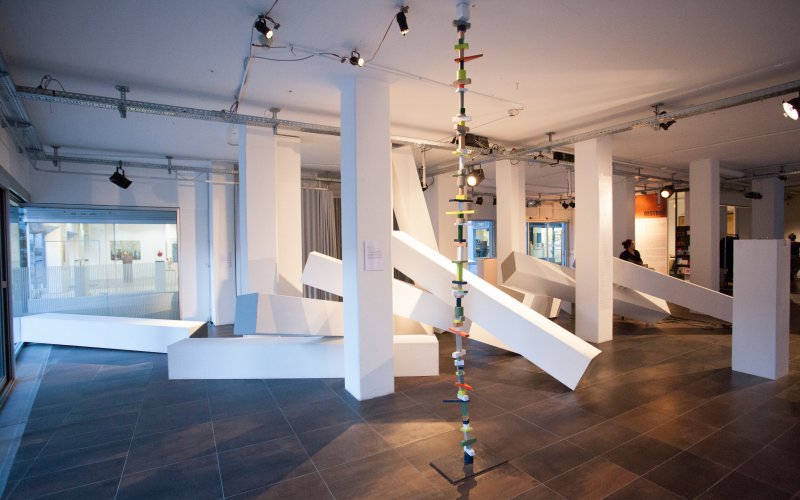Babel

It’s falling, it’s not falling, it’s falling, it’s not falling…
The swaying tower of Babel plays with our desire to create and destroy.
Playing with building blocks is a popular diversion. The drive to build them higher and higher, more beautiful, more fragile, is as great as the pleasure in seeing them fall. Between possibility and destruction, the field of emotions is ambivalent—this also applies to structures that go beyond playing.
The babylonian societal structures and the tower of babel are a symbol for societies which strive for more increasing business markets, bigger political exertion of influence, control across resources and, at least, control and manipulation of her own members. In the figurative sense, these societies stack brick for brick on top of each other.
The Cyrus Cylinder (538 BCE), the first written manifesto of human rights, also refers to Babylonian politics. In it Cyrus, the conqueror of Babylonia, criticises Nabonidus’ structures of governance. After the conquest of Babylon and the collapse of the tower, Cyrus sets free the slaves and grants more rights to all groups in Babylon.
AutorIn: Korinna Lindinger und Julia Rosenberger, aus dem Kollektiv maschen.

